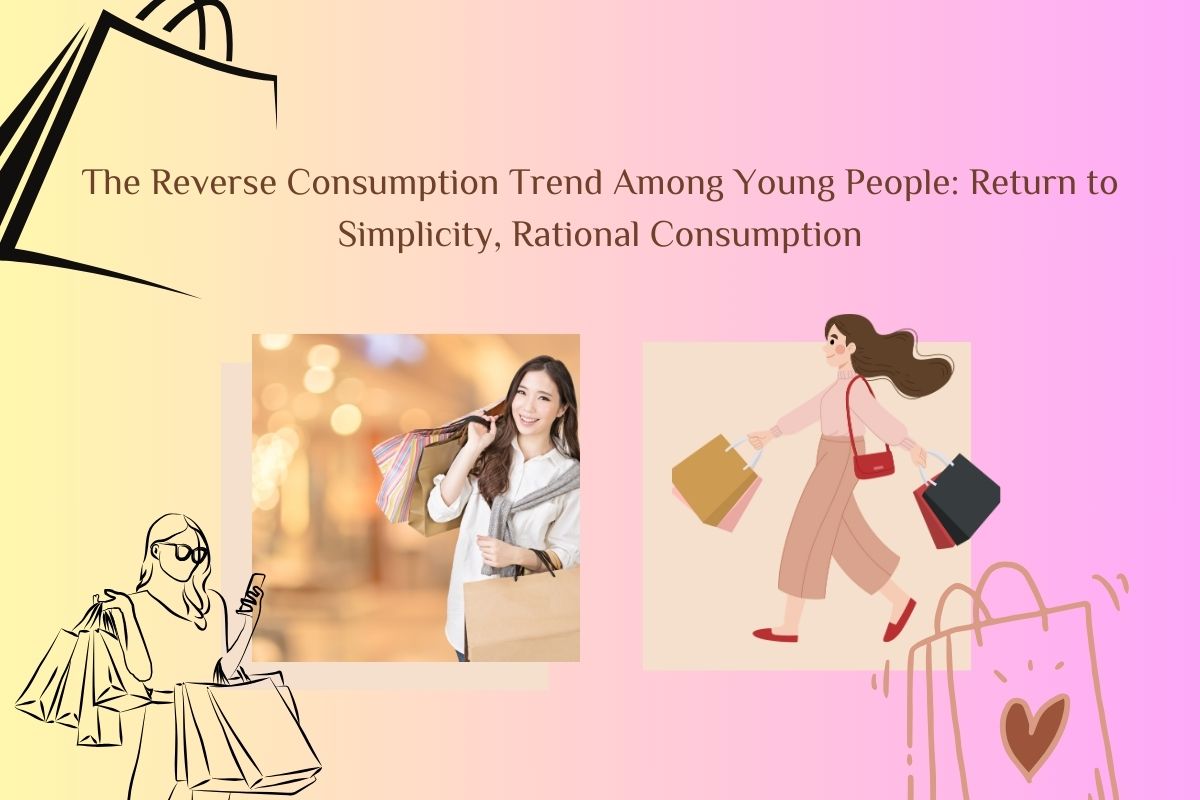The Reverse Consumption Trend Among Young People: Return to Simplicity, Rational Consumption
When it comes to shopping 购物 (ɡòu wù), do you prioritize brands or emphasize value for money? We often subconsciously assume that young people should pay more attention to brands, as it adds to their "face." However, in China today, many young individuals are following a reverse trend in consumption. They no longer focus on brands, high prices, or luxury, but instead, they are more attentive to their genuine needs. Interestingly, rather than saving up for months to purchase a designer bag, more people are starting to show off their achievements in "seeking wool from sheep" to their friends. This article will introduce you to this intriguing phenomenon!

购物 (ɡòu wù), noun,shopping
Examples:
- We do our shopping on Saturdays.
我们星期六购物。
wǒ men xīnɡ qī liù ɡòu wù 。 - Maybe they've just gone shopping.
或许他们刚刚去购物了。
huò xǔ tā men ɡānɡ ɡānɡ qù ɡòu wù le 。
Comparing Before Purchasing

In the past, many working-class individuals pursued the motto of "want it, get it immediately," buying without regrets or being fooled. If they liked something, they would just swipe their card and be done. Now, they compare online and look around offline to avoid being deceived.
Rise of the Sharing Economy

From shared apartments, cars, bikes, to dressing rooms... By renting instead of buying, all needs can be met. Its flexibility and convenience have gained the favor of many consumers. The working class chants: use, don't own!
The Second-Hand and Near-Expiry “Fragrant”Law
In the past, some working-class individuals thought it was embarrassing to buy second-hand or near-expiry items. Now, they have discovered the value: half the price, ninety percent of the experience. Why not go for it and save a lot of money by changing their mindset!
Do-It-Yourself, Achieve Abundance

Takeout 外卖 (wài mài) is convenient but not cost-effective or healthy. Occasionally satisfying cravings by eating out is sufficient. Doing many things yourself is the most reliable; they buy fresh vegetables at supermarkets and prepare delicious meals, promoting health and taste. Finding joy and a sense of achievement in cooking by oneself is also a transformation towards a healthy lifestyle attitude!
外卖 (wài mài), noun, takeout
Examples:
- Don't order takeout.
不要叫外卖。
bú yào jiào wài mài 。 - I usually just order takeout .
我通常都是叫外卖。
wǒ tōnɡ chánɡ dōu shì jiào wài mài 。
Of course, reverse consumption is not merely downgrading consumption; fundamentally, it is about shedding superficiality, returning to authenticity, and examining one's true needs. It is a more rational and mature life philosophy. The working class is not only pursuing low prices, their motto is: "You can buy expensive things, but never buy excessively expensive ones!"
Why Is This Trend Emerging?
Traditional Thrifty Ideas

In the longstanding cultural heritage of China, diligence and thriftiness are seen as virtues deeply rooted in people's hearts. Influenced by this, many young individuals are more cautious when spending money. When shopping, they no longer solely chase after luxury brands or surface glamour but place more emphasis on the practicality of items and the value they bring, striving to maximize returns on every expenditure.
This consumer habit aligns with the practicality and substance-focused tradition in Chinese culture, reflecting that the younger generation is enjoying modern life while also returning to simplicity. They avoid extravagance and waste, pursuing a more sensible and sustainable way of living.
Re-Evaluating The 'Face' Culture

While many people used to spare no expense in pursuit of luxury brands to maintain their social image in the past, considering consumption a means to showcase status, the younger generation is displaying a different demeanor in correlation with the changing societal culture. They no longer blindly follow the trend of "face" consumption but instead delve into their true inner needs, valuing personal worth realization and inner qualities.
This shift signifies that the young demographic is moving towards a more mature, rational perspective on consumption, seeking not only external glamour but also inner fulfillment and harmony. Young people are breaking free from the excessive pursuit of face consumption patterns, placing more emphasis on genuine internal needs and self-value realization. This reflects a reflection and adjustment towards traditional "face" culture.